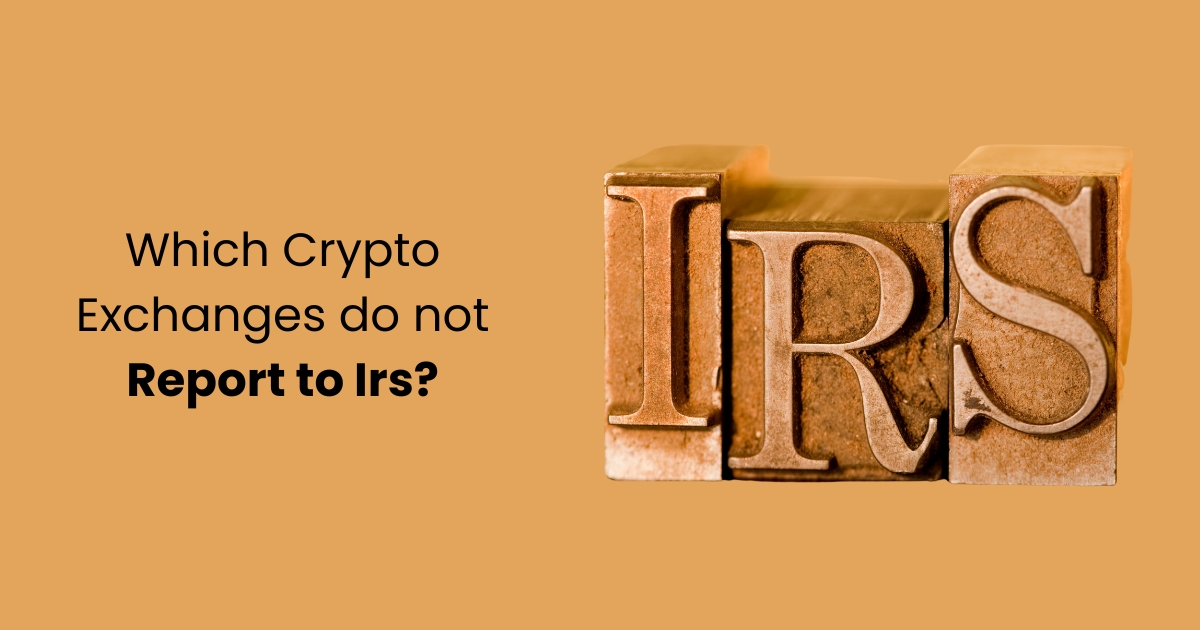Cryptocurrency has revolutionized how we money and created a global landscape where people like you or me have far greater power over our funds. A critical element of this new digital financial landscape is the relationship between crypto exchanges and tax authorities most notably collection agencies such as the U.S. Internal Revenue Service (IRS). As cryptocurrency trading gains popularity, governments around the world are stepping up in controlling and observing these transactions.
With the IRS now looking out for these kinds of activities also, in addition to further tactics used by hackers and crypto scammers on online storefronts, this is an especially private area that has you hoping your exchange reports nothing about your transacting back to them — which makes having a list like this even more crucial. In this article, we dive into these weird and wonderful details separated by the type of trader that may still be hesitant to trade crypto.
Crypto Exchanges and How They Fit in.
They are also the main introduction to engagement with speculators in this digital alternative currency transaction. Although these sources tend to differ in the features, security, and compliance they provide with government regulations. With the IRS cracking down on cryptocurrency transactions for proper tax reporting, exchanges are in the line of this regulatory attention.

IRS Cryptocurrency Reporting.
For tax purposes, the IRS treats cryptocurrencies as property and that every transfer, sale, or trade can be considered a taxable event that would result in capital gains or losses to declare. Over the years, however, the efforts increased significantly and the IRS started sending warning letters to crypto traders they believed had not paid taxes on the digital currency gains. Most exchanges in the United States are required to issue a 1099-B or similar forms that report your activity on their exchange.
Crypto Exchanges Report to IRS.
Most significant and recognizable crypto trading platforms that adhere to IRS reporting rules. Major U.S. exchanges like Coinbase, Kraken, and Gemini, which have large operations in the country, do not report user transactions to the IRS. This compliance means disclosing user identification information, transaction history, and a host of other details. Such exchanges usually demand users to complete rigorous Know Your Customer (KYC) checks, improving transparency and compliance with regulations.
But what of the crypto exchanges that are located in jurisdictions with more lax regulations that might have a certain privacy benefit? Nevertheless, it is important to remember that even if an exchange does not report directly to the IRS users have a legal obligation under U.S. law in 2018 and in future years to report their cryptocurrency trades intuitively correctly. They can impose hefty penalties for failing to do so. This type of decentralized exchanges (DEXs), and certain exchanges not under the influence of US law will provide the best privacy.
Decentralized Exchanges.
Decentralized exchanges allow users to exchange cryptocurrency with one another without the need for an intermediary and are run on blockchain technology. For example, DEXs allow users to remain anonymous as they usually do not ask for ID proof. This layer of anonymity can offer a degree of privacy but does not mean that users are exempt from paying their taxes. This has been confirmed by the IRS who is also looking to track a whole lot of transactions conducted in crypto on decentralized platforms.
Offshore Exchanges.
Offshore exchanges: Many offshore wallets might not even report it to the IRS because they may be based under a different jurisdiction. Fortunately, these platforms come with some disadvantages and risks as they can easily lead to legal problems and may engage in scams. In addition, U.S. taxpayers who transact with crypto exchanges from overseas are not relieved of their duty to pay taxes and bear the responsibility of disclosing incomes derived from virtual assets directly to tax authorities following the US legislative order. The consequences for not reporting these transactions can be extremely punitive, including sizable fines and even commitments to legal penitentiaries.
Why Compliance Matters for Crypto Taxes.
Cryptocurrencies have tax implications and no matter which trading platform is chosen, traders need to committedly perform due diligence in the field of taxation. The IRS has indicated that crypto transactions are well within the purview of levying taxes, and they have both the power (and statutory authority) to ensure compliance. Transparent and proper crypto transaction reporting not only facilitates avoiding legal issues but at the same time, it also plays a crucial role in promoting legitimacy in improving the stability of the cryptocurrency ecosystem.

Balancing the Privacy-Compliance Equilibrium.
To balance privacy with tax compliance, crypto traders must be knowledgeable about the regulatory scenario surrounding this business. Traders need to be very selective about what exchanges they use and end up being disqualified if even one wrong transaction is made. This can help simplify tax reporting by using exchanges that provide transaction reports. Nevertheless, taking privacy extremely seriously means at the very least keeping perfect records of every transaction to ensure compliance but without breaching anonymity.
Conclusion.
In the world of cryptocurrencies, this interaction between crypto exchanges and tax authorities such as the IRS is crucial. Depending on the exchange some of them report back to users transactions for the IRS and others have a more privacy-friendly model. However, no matter how much privacy an exchange does or does not provide for its users, U.S. tax reporting laws still apply to all citizens and residents of the United States. With tax professionals at the front line, crypto traders can traverse the confusing and novel financial region of digital assets for a lawful profit.

